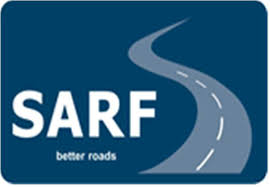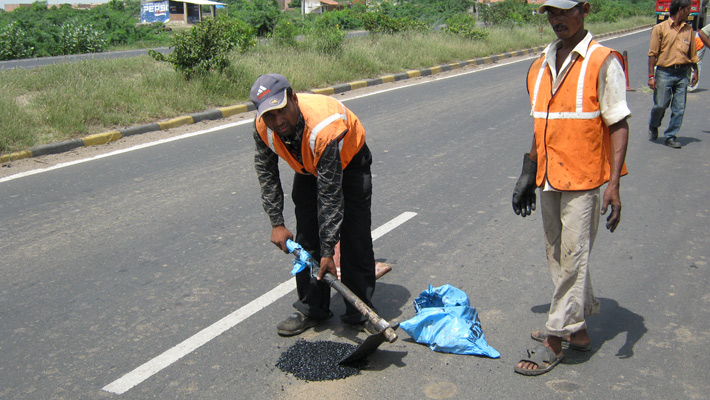
South African Road Federation (SARF) president Saied Solomons says Finance Minister Tito Mboweni overlooked South Africa’s 750 000 km road network when he announced his 2019 Budget last week.
Solomon adds that the road network, which is the tenth-longest in the world and is worth about R2-trillion, is one of the pillars of the economy.
“South Africa does not have a comprehensive road funding policy. I hope that the new draft policy developed as far back as 2017 will fill this gap. Policy has to come before a budget as the Minister himself emphasised.
“Right now, the funding of our roads remains inherently flawed in the absence of a policy to enable a road funding mechanism and administration that is acceptable to all stakeholders,” Solomons notes.
He adds that the fuel levy increase that Mboweni announced – by 29c a litre for petrol and 30c a litre for diesel – is not ideal to finance the country’s roads.
Solomons explains that this levy taxes the poor at the same tax rate as the rich. Those who can afford newer, more fuel-efficient cars are paying less to travel the same distance as those who are less well-off and drive older vehicles.
“Government is also losing revenue, owing to the continuous improvement in vehicle fuel efficiency. Many people are paying more road use tax through the fuel levy than what their fair share of road use demands. With more electric vehicles on the horizon, the fuel levy would not be sustainable.
“The fuel levy also does not consider road damage caused by the mass of a vehicle and, critically, it can not be used as a tool to manage congestion during peak periods.”
Solomons states that Mboweni highlighted the rapid rate of urbanisation in South Africa, but did not stress roads as being central to dealing with it.
He adds that two-thirds of the country’s population live in urban areas and that Gauteng is soaring beyond a population of 14-million people. The number of vehicles that people own in the country has doubled since 1994, with around 40% of these vehicle owners living in Gauteng.
“With this enormous demand on our roads, the available funding for maintenanceand expansion of the road network is not enough and road users are paying more and more in time, owing to congestion. In Johannesburg and Pretoria, for example, road users are currently spending roughly 37 minutes a day in traffic, which amounts to 141 hours a year. They are also paying heavily in vehicle operating costs where roads are in poor condition.”
He points out that South Africa urgently needs a tariff setting mechanism that deals with congestion and bad driver behaviour, for which the fuel levy is not suitable.
Meanwhile, Solomons says the Road Accident Fund levy remains highly problematic. In 2017, the road accident cost, according to the Road Traffic Management Corporation, was around R142-billion and this figure has since escalated further.
“But a significant portion of this money goes to the legal profession without benefitting the road user. This levy also does not consider who caused the accident. Again, this means that reckless driving has little consequence for people who drive outside of the law.”
SARF and the Southern African Bitumen Association in 2017 initiated a road funding study with Stellenbosch University, which shows that accidents cost the country trillions of rands each year, placing an unnecessary drain on the fiscus and preventing other road priorities from being addressed, Solomons highlights.
Solomons does, however, welcome the R3.5-billion that the Minister allocated to the South African National Roads Agency to improve nontoll roads over the next three years, but he says this is simply part of the agency’s mandate – to finance, improve, manage and maintain the national road network for people and the economy.
“Worryingly, this money does not address the serious backlogs in road maintenancethat we have on our roads, which SARF calculates requires an additional R23.3-billion a year to address.
“I salute Mboweni in promoting the user-pays principle and in encouraging South Africans to pay for services and to pay their taxes. This, I hope, has set the scene to build understanding around a user-pay principle that will counter the high levels of civil disobedience we see in the country.”
Solomons says South Africa needs a new approach to road funding based on paying per the mass of the vehicle and the distance travelled. “We need to develop a systemof road pricing that varies by when, how much and where drivers use the roads. This should involve a tariff setting mechanism that influences behaviour and helps manage road capacity.
“Public sentiment will be far easier to manage if we have a road use charging systemthat is cost-effective, efficient, sustainable, equitable and well administered. Critically, charging for road use must be transparent so that all sectors of society, including ordinary South Africans, know that government’s investment and road infrastructurespending is in their interest.”
He adds that finalising the draft roads policy will go a long way in sorting out the roadfunding challenges.
Governments obtain the funds for roads mostly, although not exclusively, by way of general taxation, road user levies and charges (including the fuel levy) and other taxes.
Whether or not road funds are ring-fenced – a key consideration for any government transport infrastructure policy, but specifically for roads – government’s investment and road infrastructure spending should be in the public interest, Solomons concludes


